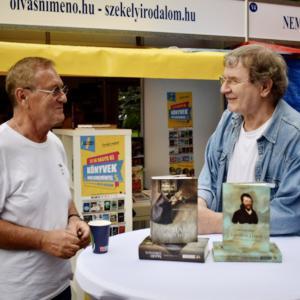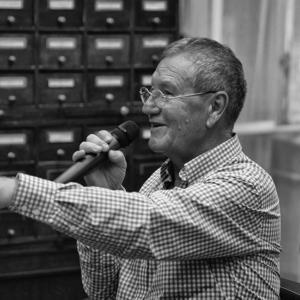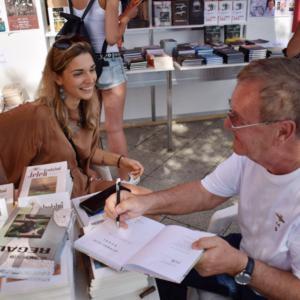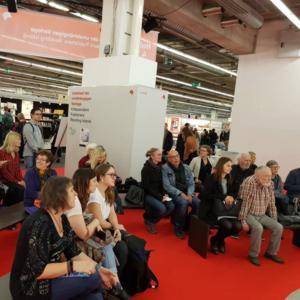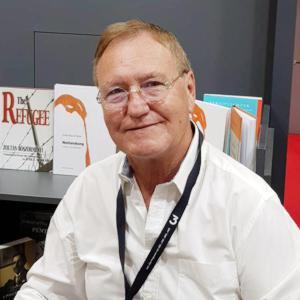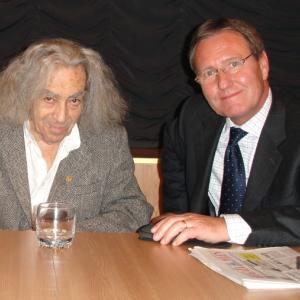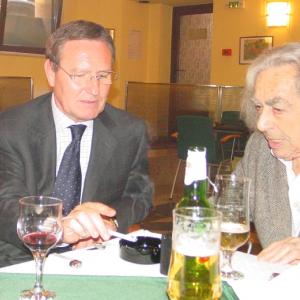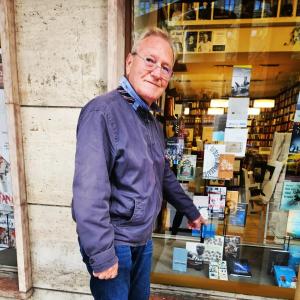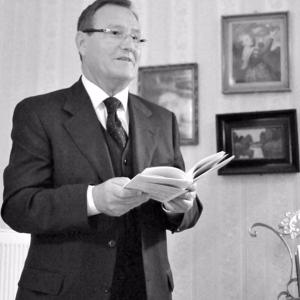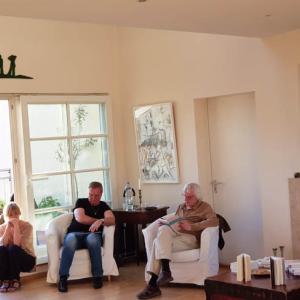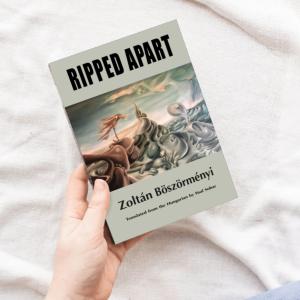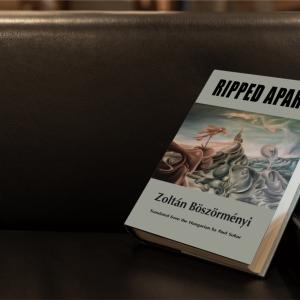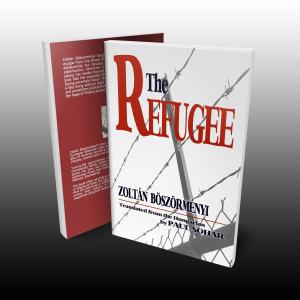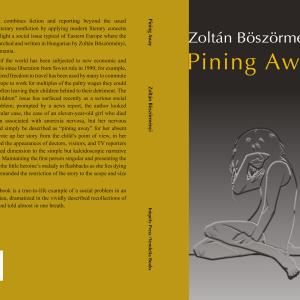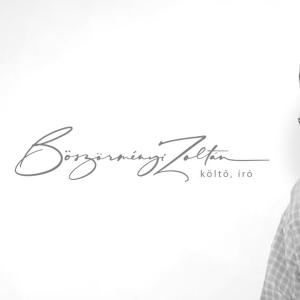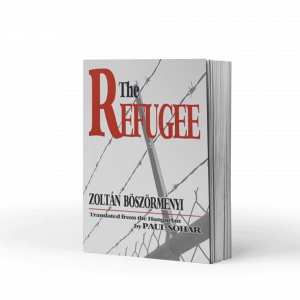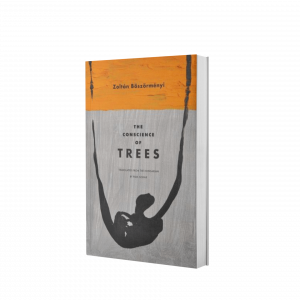Curriculum Vitae
- Zoltán Böszörményi, writer, poet, was born on Dec 18, 1951, in the Hungarian community of Arad, Romania
- Attended Hungarian high schools in Kolozsvar (Cluj) and Arad
- Graduated from York University of Toronto majoring in philosophy
- Married, with one daughter, Melinda (1978), the second one, Panna (2006)
- Started Luxten Lighting Company in 1993 and remained its principal shareholder till December of 2003
- Editor-in-chief of a Hungarian-language daily and a monthly journal in Arad, Romania
The thing I remember most vividly about my childhood is the constant hunger I suffered from for a period of seven years. My mouth tends to take on Biblical significance. Ever since then my life seems to have come to a turning point every seven years, either for the better or the worse.
I attended elementary school in the town of Arad at the Kilin Academy, named after its headmaster, Mr. Kilin. Older graduates still refer to the school by that name.
My mother came from a Szekler family. My father was born in Arad. They got married in 1950. But it was a mistake. They shared the same temperament, which doomed the marriage from the very beginning.
Eventually they divorced; I went with my father and my brother Laszlo with my mother. But I still feel I grew up as an orphan and that I should have become a vagrant or at least a homeless squatter.
Shortly after the divorce my father remarried, and I became a stepchild with a stepmother. The situation was not all that upsetting but not very pleasant either. It was clear right away that I had to leave “home”. My father was all for it. He sent me off to a ballet-oriented high school in Kolozsvár (Cluj).
I spent seven years there. It was at that time that I took up the bad habit of scribbling poetry. I often missed my classes and went to the movies instead. In the evenings I would attend two dramas or two operas, alternately, with my friend Guszti. I read my first writings in the Gaál Gábor Literary Society. Tibor Bálint presided over the readings. I couldn’t believe my ears when he compared me to Dostoyevsky. In addition, there were others, such as Aladár Lászloffy, Sándor Kányádi, Sándor Fodor, who encouraged my first hesitant steps on the well-paved, flower-lined highway of literature. But it didn’t last long. My father developed a new phobia; in order to prevent me from becoming a homosexual he ordered me back to Arad. And just so that I would not go too soft – in Kolozsvár I was used to a rigorous daily regimen of physical exercise – he got me a job as an unskilled laborer at a construction company. My lack of a trade ensured my keeping in shape; in the absence of hoists or elevators I had to carry building materials in sacks or buckets up to the tenth floor.
I was seventeen and a half when I graduated from the adult evening division of High School No. 3 of Arad. I got a grade of six (out of ten) in my Hungarian Literature oral exam. According to rumors, my father’s fortuneteller predicted a failing grade, but apparently some hex jinxed her prediction. On reaching the adult age of eighteen I did something most people do as minors; I ran away from home.
It didn’t take long for my father to find me. Without really thinking it through I ran off to Kolozsvár, giving little cause for my father to rack his brains on my account.
In my twenty-second year I was recovering from infectious hepatitis in a hospital when on a morning visit the doctor in charge of my case – looking at a swelling on my neck – predicted a wondrous future for me. He offered the choice of two diagnoses: pancreatic cancer or tuberculosis. The question awakened in me such a will to live that the doc had a hard time keeping me in the ward.
I did my sixteen-month military service in Bucharest. During that time I often felt tempted to shoot myself with my rifle, but somehow I never managed to pull it off. On the other hand, I did manage to collect my wits in 1977 (Note: number seven occurs twice in that propitious date) and get married. My daughter Melinda was born a year later.
My first volume of poems, “On Whirlpool Wings”, was published by Litera Press of Bucharest and subsidized by the money I had earned as a housepainter. This was followed two years later by “Title Suggestions”, my second volume from the same publishing house. It was such a success that the security forces of the time commissioned Romanian translations immediately. As an upshot, I ended up in a basement room with a security officer who punched me in the face and asked me if I had ever seen a fatal automobile accident. Perhaps it was this incident that made me a wanderer. I started out by aiming at the Yugoslav border. Luckily, I found safe haven in the refugee camp of Treischirchen, Austria, where I spent over seven months. I have fond memories of my three-month stint there cleaning toilets.
My original destination was Australia, just so as to put the greatest distance between Europe and myself even on the map, but destiny took me to Canada. As soon as I arrived there I had a feeling amounting to a conviction that my fortune would change for the better. I deduced my future success from the self-confidence I felt standing on the sidewalk across the road from Pearson International Airport of Toronto on the evening of my arrival. This self-confidence was not diminished by the fact that I was standing there alone, without family or friends to greet me, without a trade and the command of the English language, clutching my single piece of luggage in my sweaty hand, and with my total earthly treasure of 25 Canadian dollars in my pocket.
I was admitted to York University of Toronto under one condition: if I flunk the first English language and literature course picked out by the admission committee, I would be barred from further study. I worked very hard to avoid that eventuality, and in four years I graduated with a major in philosophy.
Seven years after my arrival in Toronto I started my own business. The net profit of the first two weeks was six thousand dollars. I photocopied the check before depositing it in the bank and framed it. I may still have it in the basement storage area of one of my apartments.
It took me two times seven, that is, fourteen years for me to build the most modern light bulb manufacturing plant of Romania. My company also got contracts for the reconstruction of Bucharest’s and other major Romanian cities’ streetlights.
For the past eight years my principal residence has been in Monaco. My apartment belonged by Claudia Shiffer, the supermodel, for a year before I purchased it. I show my wife’s bathroom to my male visitors and leave to their imagination to picture its former occupant in the bathtub.
Nowadays it costs me money to work. As my companies face bankruptcy one by one I dispense the benefits of my business experience free of change.
However, to this day I am often haunted by the fear of starvation. It’s never far from my thoughts, it’s like a painfully disturbing sensation. My first opportunity to experience it came in Kolozsvár in the early sixties. I’ve seen the world in a different light ever since.

